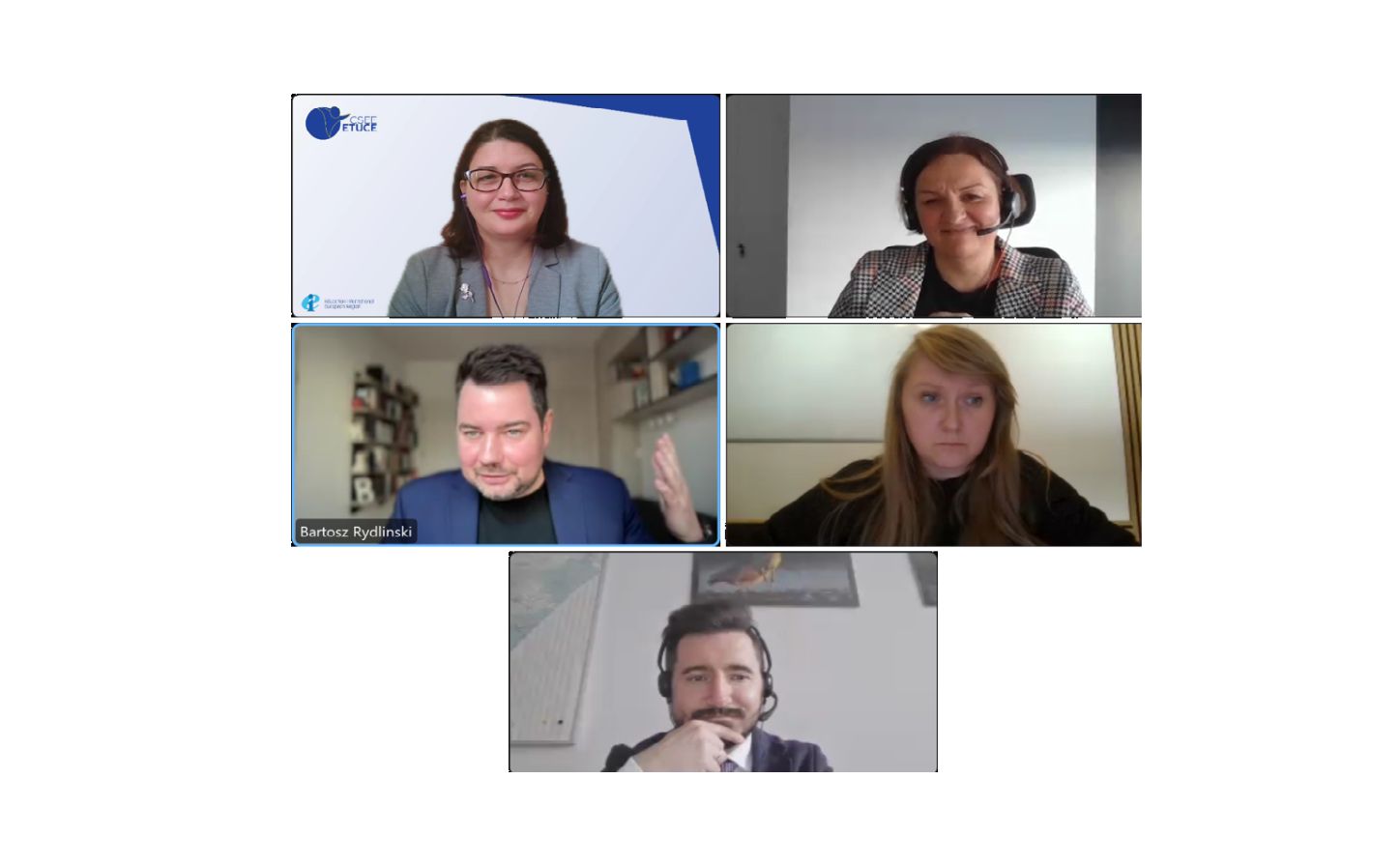
Polish Teachers' Union Hosts International Webinar on Curriculum Reform and Teacher Support
The Polish Teachers’ Union (ZNP), in cooperation with the European Trade Union Committee for Education (ETUCE) and the Education Leadership Network Europe, recently organized an international webinar focused on supporting teachers in the process of implementing curriculum reform.
The event brought together a distinguished panel of speakers, including Dr. Bartosz Rydliński (ZNP), Marcin Marciniak-Mierzejewski (Educational Research Institute, Poland), Dr. Joanna Dobkowska (University of Warsaw), Anna Marciniak (Centre for Development of Education, Poland), and Ewa Stokłuska (Shipyard Foundation).
For the first time in Poland, curriculum reform is being developed through extensive public consultation. The webinar presented the Polish experience in this process, highlighting the urgent need to support novice teachers as a key factor in strengthening resilience and improving the quality of education.
Poland is currently facing a significant teacher shortage. Over 23,000 teaching positions remain unfilled, forcing school principals to rely on retired teachers and assign multiple roles to existing staff. More than 80% of Polish teachers are over the age of 40, and half are over 50. In just five years, the education system is expected to face an even more severe shortfall due to an aging workforce, while the number of applications to teacher training programs has also declined.
The University of Warsaw investigated teachers’ retention in the profession by surveying 800 teachers who graduated less than five years ago. Alarmingly, 50% of them are considering leaving the profession. Despite their desire to make a positive impact on children’s lives, teachers cite low salaries, poor cooperation with parents, difficult working conditions, disorganized work structures, a negative emotional climate, and a lack of recognition from parents, school leadership, and students as major demotivating factors.
The pandemic further exacerbated these challenges, with parents becoming more involved in education and increasingly questioning teachers' methods. To rebuild trust and respect, the development of soft skills, including confidence, self-esteem, and communication, is seen as essential and should be integrated into teachers’ initial education. Strengthening teachers' sense of authority and leadership is increasingly important as the role of educators evolves in the face of rapidly changing knowledge sources. Teacher training in Poland now includes components focused on building self-esteem.
The webinar also addressed the need to transform the democratic culture within schools. It emphasized the importance of valuing all actors, like teachers, students, and parents, and fostering collaborative communication. School leadership styles must evolve, with training for school leaders focusing on distributed leadership and teamwork.

Individual mentoring for teachers is also a priority. A national project is underway to train 600 methodological advisors who will mentor 1,800 teachers, with the goal of improving both teaching quality and teachers’ professional standing.
For the first time, Poland’s Ministry of Education has tasked the Educational Research Institute with developing curriculum reform, which is set to be completed by 2026, following declines in Poland’s PISA results in math, science, and reading, particularly as a result of the COVID-19 pandemic. A key objective is to improve learning outcomes by fostering not only academic skills but also emotional development, self-esteem, curiosity, and a sense of belonging to the school community. Alarmingly, only 26% of students report being interested in learning within the school environment, with a noticeable decline beginning around the age of 10. The well-being of both students and teachers is closely interconnected, as only 30% of students are taught by teachers who report job satisfaction.
As part of this reform, a graduate profile for primary school teachers has been developed in Poland, which schools must implement with appropriate funding. Poland’s national education budget has seen a significant increase this year, with a 30-40% salary rise for beginning teachers aimed at attracting more candidates to the profession.
ZNP continues to advocate for a democratic school culture and robust social dialogue to improve teachers’ working conditions and salaries. As highlighted during the webinar, meaningful education reform cannot happen without engaging teachers, students, and parents. Education must evolve to meet the demands of today’s world, and that change begins with supporting those who stand at the heart of the system: the teachers.
The recorded webinar is available here.
Please find other related webinars here:
EEM 2025 - Digitalisation of education– by OBESSU, EPA, and ETUCE
EEM 2025 - Support and Guidance for Teachers: Introducing Curriculum Reform in Education– by ZNP
EEM 2025 - School Principles Czech Republic(in Check and Slovakian) – by CMOS – PS
EEM 2025 - How to facilitate effective and sustainable collaborative leadership– by TUI
EEM 2025 - European Sectorial Social Partners in Education Addressing Psychosocial Risks– by EFEE and ETUCE
EEM 2025 - Leading by dialogues: collaborating with private schools to educate teachers at CERN– by OIELE





